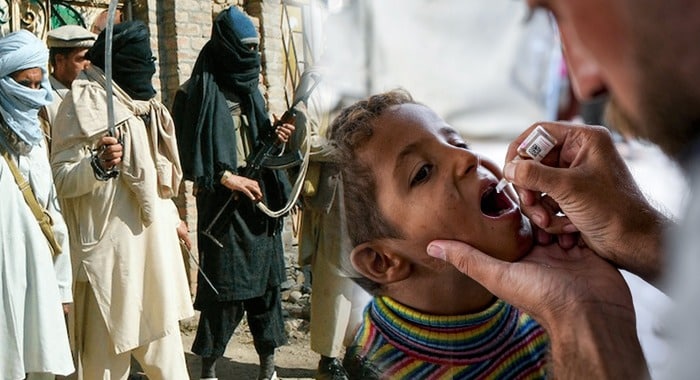A frontline polio worker was shot dead and another seriously injured in Afghanistan’s Paktia province on Monday morning, as they carried out a door-to-door immunization campaign in defiance of Taliban-imposed restrictions—an incident that starkly exposes the perilous collapse of public health protection under the de facto regime.
Local sources confirmed that the attack took place in the Beland Manzel area of Gardez, the provincial capital, when the vaccination team approached a residence to administer polio drops to children. After the occupants initially refused, the team made a second attempt to persuade them—prompting gunfire from within the house. One vaccinator died at the scene, while another sustained serious injuries.
The Taliban authorities—who have banned house-to-house polio vaccination since returning to power in August 2021—have not issued any statement on the killing. The silence has fueled widespread condemnation and intensified fears over the regime’s disregard for frontline healthcare workers and its obstruction of international public health efforts.
Health experts say the Taliban’s continued ban has crippled outreach to vulnerable populations. Under the current policy, immunizations are restricted to static locations such as mosques and clinics, leaving vast rural areas underserved. Many families remain unaware of immunization schedules or are unable to reach designated sites—placing tens of thousands of children at risk of permanent disability or death from a disease the world had once come close to eradicating.
“This is not just a criminal act—it’s a policy failure with lethal consequences,” said a Kabul-based medical professional familiar with immunization efforts. “The Taliban have created an environment where saving lives is treated as a threat.”
Since the Taliban’s return to power, Afghanistan has recorded 25 new polio cases, according to the Global Polio Eradication Initiative (GPEI). Kandahar province accounts for 11 cases, followed by Helmand with 8, Uruzgan with 2, and one case each in Paktika, Kunar, Nuristan, and Badghis—most occurring in areas under strict Taliban control.
The attack in Gardez has drawn sharp reactions from global health organizations, which have repeatedly urged the Taliban to lift the ban on door-to-door vaccinations. Both the World Health Organization (WHO) and UNICEF have warned that without immediate and unhindered access, Afghanistan risks becoming a global epicenter for a resurgence of polio.
Public outrage is also growing within the country, as families and communities grieve not only the loss of health workers, but the eroding promise of a disease-free future for their children.
The murder of a vaccinator in the line of duty—met with silence from Taliban authorities—has become a chilling symbol of the regime’s hostility to global health cooperation and its failure to protect even the most basic human right: the right to survive.





